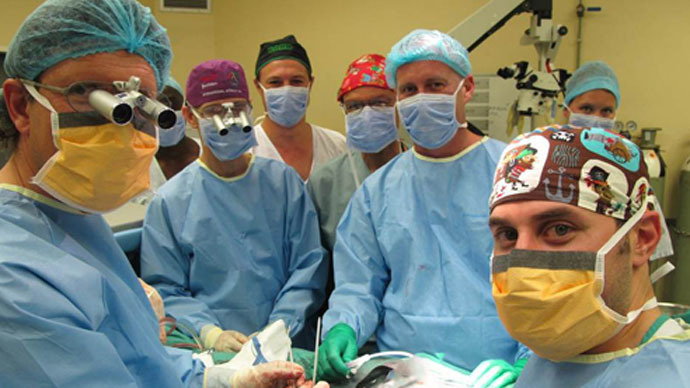
SOUTH African surgeons have performed a groundbreaking operation in which they got the penis of a 21-year old man restored after it was amputated due to a botched circumcision. According to a report by the Daily Mail Online, the transplant was carried out in December at Tygerberg Hospital in South Africa but announced at the weekend.
The penis was said to have been donated to the hospital by “a deceased organ donor.” Nerves and blood vessels were connected by a team of surgeons. The patient made “rapid” recovery and has regained all functions in the organ.
The operation took South African surgeons nine hours to perform, and allowed the patient to urinate normally and become sexually active again. The South African government has praised the surgeons who performed the operation.
The Head of Western Cape Government Health, Dr. Beth Engelbrecht, said: “We are very proud to be part of this groundbreaking scientific achievement. It is good to know that a young man’s life has been significantly changed with this very complex surgical feat. From experience we know that penile dysfunction and disfigurement has a major adverse psychological effect on people.”
Three years ago the man, who remains unidentified, was forced to have his penis amputated after a botched circumcision. Each year, thousands of young men, mainly from the Xhosa tribe in South Africa, have their foreskins removed in traditional rituals, with experts estimating around 250 losing their penises each year to medical complications.
The operation was carried out by surgeons from Stellenbosch University and Tygerberg Hospital in Cape Town, South Africa, using a penis donated from a deceased person. They said the procedure allowed the man to regain all function in the newly transplanted organ. Nine more patients will now receive penile transplants. Prof. André van der Merwe, head of the university’s Division of Urology, said they were surprised by the patient’s rapid recovery.
‘Our goal was that he would be fully functional at two years and we are very surprised by his rapid recovery.” Prof. Frank Graewe, another of the hospital’s surgeons who assisted on the operation, said: ‘It’s a massive breakthrough. We’ve proved that it can be done – we can give someone an organ that is just as good as the one that he had. It was a privilege to be part of this first successful penis transplant in the world.’
Van der Merwe said having a penis amputated is known to have a seriously adverse psychological effect on men. “This is a very serious situation. For a young man of 18 or 19 years, the loss of his penis can be deeply traumatic. He doesn’t necessarily have the psychological capability to process this. There are even reports of suicide among these young men.” The expert, who said finding a donor organ was one of the main challenges to the procedures, called the man who donated his penis, and his family, heroes.
The procedure was performed as part of a pilot study to develop a penile transplant procedure that could be performed in a typical South African hospital. The planning and preparation for the study started in 2010. After extensive research, Van der Merwe and his surgical team decided to use techniques developed for the first facial transplant. It was learnt that the operation was the second time that this type of procedure was attempted, but the first time in history that a successful long-term result was achieved.
According to the report, a man in China received a transplant in 2005 but that man asked surgeons to remove the new organ two weeks later. Van der Mewe said the procedure could eventually also be extended to men who have lost their penises from penile cancer or as a last-resort treatment for severe erectile dysfunction due to the side effects from medication.



